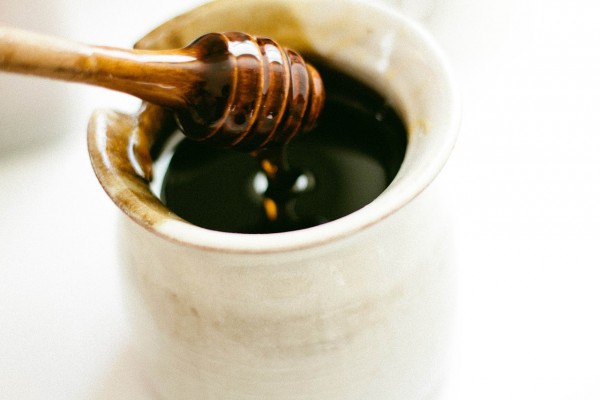All The Benefits of Manuka Honey, The Ultimate Superfood

What is Manuka Honey?
Manuka honey is a type of honey produced by bees that pollinate the flower Leptospermum scoparium, commonly known as the manuka bush. It has been gaining much attention recently due to its antimicrobial activity.
Researchers have discovered that Manuka honey exhibits medicinal properties and can be beneficial when used in combination with other antimicrobial agents.
Hydrogen peroxide gives most honey its antibiotic property. In Manuka honey, the complex mixture of methylglyoxal (MG) is being linked as active ingredient responsible for these antibacterial effects.
The higher the concentration of the MG, the stronger its antibiotic effect.
Honey producers rate the potency of manuka honey based on its UMF, which stands for Unique Manuka Factor.
Manuka honey needs a minimum rating of 10 UMF to be considered potent enough to be therapeutic. Those that have achieved this level are marketed as "UMF Manuka Honey" or "Active Manuka Honey."
Manuka honey does not only exhibit antimicrobial, anti-inflammatory and antioxidant properties, but studies also suggest that it may also have antiviral effects that can the body fights against viruses.
Benefits of Manuka Honey
Manuka isn't raw honey, but rather considered as specialized honey. It is bacterial resistant meaning bacteria is not able to build up a tolerance against its antibacterial effects. Below are some of the health benefits of manuka honey.
- Promotes wound healing
All forms of honey are acidic, possessing a pH level between 3.2 and 4.5. This acidity blocks the enzymes that inhibit the body's ability to repair itself, which helps promote healing.
Since honey is low in moisture, it draws fluid and removes waste from the wound. Because bacteria thrive in the presence of moisture, the absence of this will kill them.
- Promotes oral health
Based on CDC reports, almost 50% of Americans suffer from some form of periodontal or gum disease.
Studies have shown manuka honey fights and inhibit the growth of harmful oral bacteria such as P. gingivalis and A. actinomycetemcomitans, which are associated with dental problems like plaque formation, gum inflammation, and tooth decay.
The idea of consuming honey may raise some questions as consuming too many sweets can lead to cavities, however, unlike candy and refined sugar, manuka honey's potent antibacterial effects make it less likely to cause cavities or tooth decay.
- Cosmetic benefits and skin acne
Manuka honey has anti-inflammatory effects which can reduce redness and irritation associated with acne. It helps balances the pH level of your skin and slough away dead cell debris to keep your skin clean.
- Promotes gut health
Research reveals that incorporating manuka honey to the diet may help treat gastric ulcers caused by H. pylori.
By administering triple therapy involving honey, amoxicillin, and clarithromycin, it shows that using honey may help shorten the duration needed to eliminate H. pylori from the stomach lining of patients with gastritis or duodenal ulcer caused by H. pylori infection.
Overview
Manuka honey can speed up the process of wound healing and tissue regeneration due to their immunomodulatory property. However, further studies are still needed to support its beneficial properties. Overall, it can be an effective treatment strategy to help accelerate the healing process when used in combination with more conventional therapies.
MORE READING: COVID-19 Has Led People to 'Hoarding and Herding,' Study Says
Check out more news and information on Superfoods in MD News Daily.
Sep 14, 2020 08:20 AM EDT





